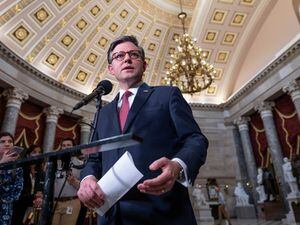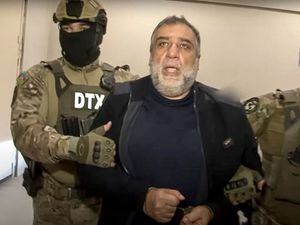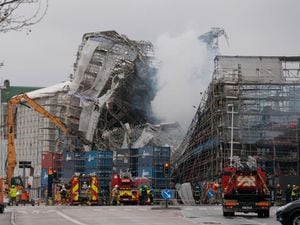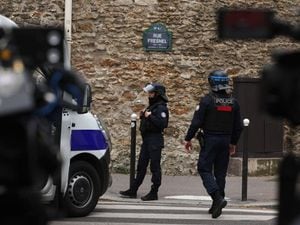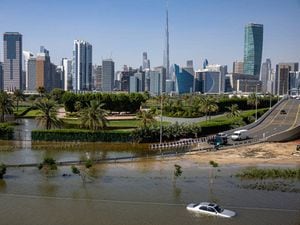Ecuador’s army deployed on streets after anti-government protests
Masked protesters attacked a television station, newspaper and the national auditor’s office.
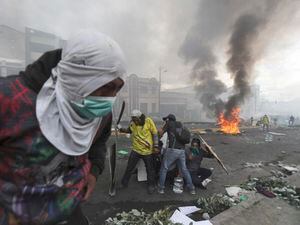
Ecuador’s president has ordered the army on to the streets of the capital after a week-and-a-half of protests over fuel prices descended into violence.
Masked protesters attacked a television station, newspaper and the national auditor’s office.
President Lenin Moreno said a military-enforced curfew would begin at 3pm local time in response to violence in areas previously untouched by the protests.
At around 1pm, masked protesters broke into the national auditor’s office and set it ablaze, sending black smoke billowing across the central Quito park and cultural complex that has been the epicentre of the protests.

“They’re trying to enter the station, trying to break down the doors, we’re asking for help but the police aren’t coming,” one employee said.
A journalist with the newspaper El Comercio told the AP that the paper’s offices in southern Quito were also under attack.
The building’s security guards were seized and tied up and attackers were trying to break into offices where journalists were hiding, the reporter said.
Mr Moreno appeared on national television alongside his vice president and defence minister to announce that he was ordering people indoors and the army on to the streets.

Mr Moreno served Mr Correa as vice president before he become president and the two men went through a bitter split as Mr Moreno pushed to curb public debt amassed on Mr Correa’s watch.
Mr Moreno said the masked protesters had nothing to do with the thousands of indigenous Ecuadorians who have protested for nearly a week over a sudden rise in fuel prices as part of an International Monetary Fund-backed austerity package.
“I have ordered the Armed Forces Joint Command to immediately undertake all the necessary measures and operations,” Mr Moreno said. “We are going to restore order in all of Ecuador.”
The violence, curfew and military deployment came shortly after the announcement of a possible softening of Ecuador’s 10-day standoff.
Indigenous leaders of the fuel price protests that have paralysed Ecuador’s economy for days said early on Saturday afternoon that they were willing to negotiate with Mr Moreno over the austerity package.
The Confederation of Indigenous Nations of Ecuador said on Twitter that “we have decided to participate in direct dialogue”.
Minutes later, Leonidas Iza, a Quechua leader from mountainous Cotopaxi province, told Ecuavisa television that “we have asked for minimal conditions for dialogue,” including what he called an end to government violence against protesters.
Previously, indigenous protesters had refused to negotiate until Mr Moreno restored fuel subsidies.
Quito Mayor Jorge Yunda said Mr Moreno was willing to revise the package and planned to meet on Saturday with leaders of the demonstrations.
Mr Yunda said he and other mayors were mediating the stand-off that has halted Ecuador’s oil production, blocked highways and caused hundreds of millions of dollars of losses to industries such as flower-growing to dairy farming.

